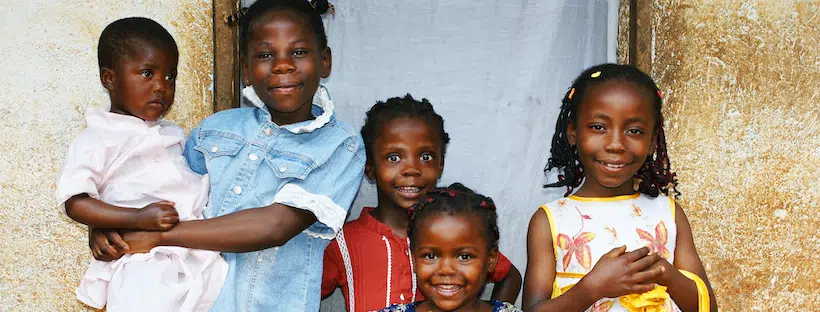Navigating our children’s emotional, spiritual, and mental health is a huge part of parenting. It’s a responsibility that most do not take lightly. And when our children hurt in any way, we also hurt. That empathy is part of the immense love that parents have for offspring. When we see our children hurting, we want to alleviate that hurt. If we cannot actually make the pain go away, we want to help our children work toward alleviating the pain themselves.
We know that life can be complicated. Life can be messy. Life can be confusing. Kids today face bombardment on many fronts—in school, on TV, and on social media—regarding countless issues. It’s extremely difficult for kids struggling with any feelings to work through them or to even find good and moral advice. This is especially true when kids experience same-sex attraction.
We live in a world that tells people they can do what they want when they want. The world often claims that bodies are made for pleasure and that there are few repercussions regarding what we do with them. This misguided thinking leads kids away from the inherent goodness in the twofold nature of sexuality.
When approached by a child who says he or she experiences SSA, Catholic parents must arm themselves with the right tools to talk lovingly with the child. The first step in doing so comes from an understanding of what the Church teaches regarding SSA.
What Does the Church Teach about Same-Sex Attraction?
First and foremost, the Catechism of the Catholic Church teaches that those who experience same-sex attraction “must be accepted with respect, compassion, and sensitivity. Every sign of unjust discrimination in their regard should be avoided. These persons are called to fulfill God’s will in their lives and, if they are Christians, to unite to the sacrifice of the Lord’s Cross the difficulties they may encounter from their condition” (2358).
When a teen or young adult confides in a parent about SSA, some parents are surprised, some say they had suspected for a while, some may feel anger, or some may even be in denial. This can be a difficult reality for parents to face. More so, it’s difficult for parents to know what to do, how to react, how to help, and to know what the “right” things are to say.
Thankfully, the Church has offered guidelines and advice.
But first, we want you to know that, while there are many right things to say, there are also wrong things to say. So even if you feel shock, confusion, or a myriad of other emotions, the most important thing you can tell your child is that you love him and that he will always be your beloved child. It is vital that your child feels cherished as a member of your family.
While researchers have only hypothesized at the reasons why people experience same-sex attraction, it is a reality—and it’s a journey both parent and child should walk together in love.
It is our job as parents to help our children understand their inherent dignity and worth as a child of God. And it’s our job as parents to explain what the Church teaches regarding chastity. In actuality, it is our job as parents to teach chastity no matter which gender our children feel an attraction toward.
It’s important to note that many people erroneously believe that same-sex attraction is a sin. It is not. Simply feeling attracted to a person of the same sex is not a sin. What is sinful is the commission of any sexual act outside of a marriage. Why?
The Church teaches that the sexual act should be reserved for a man and a woman within a sacramental marriage. Further, the Church teaches that marriage can only be between a man and a woman. This is so because of the two-fold reason for the sexual act: sex is both unitive and procreative.
Sex is unitive in that male and female bodies complement each other. During the sexual act, the man and woman unite to become one person. This brings us to the procreative purpose. A man and a woman, along with God, help create a human being. Of course, this doesn’t happen after every sexual act. But the union of a man and a woman is the only natural way that another human being can be created. When we purposefully omit one or the other—the unitive or the procreative—we are stifling one of the purposes of sex.
The Catechism of the Catholic Church teaches that homosexual acts “close the sexual act to the gift of life. They do not proceed from a genuine affective and sexual complementarity” (2357).
In Made for Love, his book about same-sex attraction, Fr. Mike Schmitz explains in depth the purpose of our bodies, the importance of the sexual act, the beauty of marriage, our inherent integrity and dignity, and the true meaning of self-giving love. It’s a beautiful book for any parent of someone who experiences same-sex attraction—or for that person himself. Fr. Mike’s kind and compassionate words will help you and your family understand God’s immense love and His plan for us as His children. And chastity is part of that plan.
Why Does the Church Teach Chastity?
The Church actually teaches that anyone not married is called to complete abstinence. It teaches this because the sexual act is so special, so beautiful, and entails such a gift of the self that it should be reserved for a man and a woman who have given themselves to each other in a marriage covenant.
In addition, the Catechism of the Catholic Church teaches that “homosexual persons are called to chastity. By the virtues of self-mastery that teach them inner freedom, at times by the support of disinterested friendship, by prayer and sacramental grace, they can and should gradually and resolutely approach Christian perfection” (2359).
Many people who experience same-sex attraction tend to only identify themselves as a person with same-sex attraction. But human beings are so much more than their sexuality. As Fr. Mike says in Made for Love:
The inclination to define ourselves by our story, our experience, is very tempting for those who experience same-sex attractions. For example, a person could say, “Well, I experience an attraction to people of my sex. Therefore, I’m gay. That is who I am. That is my identity.” But while our experiences are a part of our story, no experience is powerful enough to give us our identity.
He goes on to say: “If we allow ourselves to be defined by our sexual attractions, we are reducing ourselves and defining ourselves by something far too small.”
Indeed, we are so much more than sexual beings. We are children of God who each have our own special potential unrelated to sexuality. If we are to only focus on who we are as sexual beings, we do ourselves a disservice. We diminish our capabilities, our potential, and our worth.
When we heed the call to chastity, we see ourselves as more than mere sexual beings. We are better able to focus on the other things that make us special and unique without getting bogged down in sexuality.
Love Your Children Unconditionally
One of the most basic human desires we all have is to be loved and accepted. No one wants to be different or to struggle with feelings that cause those closest to them to feel anger or confusion. So it is with our children.
As parents, it is our job to love our children unconditionally. God entrusted our children to us, and it is our job and responsibility to teach them about our faith, to treat them with love and compassion, to support them in life’s journey, and to do our best to bring them closer to God.
However, supporting them as our children and as children of God does not mean that we must approve of all their actions. We know the reality is that, though we may teach about the importance of chastity, our children may decide that they are going to enter into a same-sex relationship anyway. This can be difficult to witness. We may feel anger, yet we cannot be cruel. We may worry for them, yet we should not hide our worries from them. And through it all, just as Jesus loves us despite our sinful actions, so must we love our children despite their sinful actions.
To do anything less would be to go against the very nature of all Jesus taught.
Support
Upon learning about their child’s SSA, many parents have no idea how to proceed, what to say, or what to do. Having a faithful person to talk to or a group to join can be an immense help. There are many faithful resources that offer support as you navigate these waters with your child.
For example, the group EnCourage “is an apostolate which provides pastoral care for families and friends of people who experience same-sex attractions and/or gender dysphoria. In many cases, their loved ones have adopted the LGBTQ label, and may have moved away from actively practicing their faith. Through local chapters and online support, our members receive help and encouragement to understand the experience of their loved ones more deeply, to foster healthy relationships within their families, and to deepen their own relationship with Christ.”
The USCCB has written a pastoral message to parents. Called Ministry to Persons with a Homosexual Inclination: Guidelines for Pastoral Care, this 26-page document will help parents come to a greater understanding about Church teaching and offers ways you can give support to your child without alienating him or her.
Fr. Mike Schmitz has written a beautiful book entitled Made for Love. You can find it at Amazon or Ignatius Press.
Individual parishes often have their own support groups. Contact your parish office or pastor for more information.
Final Thoughts
In a video last year, Pope Francis spoke to parents, saying: “Every child that arrives is God’s gift.”
Every child is, indeed, a gift. Your child is a gift. From the moment your child was created, he or she has been a great gift to you. That should never change.
It is our job as parents to make sure that our children never feel like anything less than a gift of God.
Related Content
Susan Ciancio has a BA in psychology and a BA in sociology from the University of Notre Dame, with an MA in liberal studies from Indiana University. Since 2003, she has worked as a professional editor and writer, editing both fiction and nonfiction books, magazine articles, blogs, educational lessons, professional materials, and website content. Fourteen of those years have been in the pro-life sector. Currently Susan writes weekly for HLI, edits for American Life League, and is the editor of its Celebrate Life Magazine. She also serves as executive editor for the Culture of Life Studies Program, an educational nonprofit program for k-12 students.
















An amazing resource is Desertstream.org. A group based on Jesus’ mercy and the dignity of men and women made in God’s image, they equip Christians to gather in pursuit of radical wholeness. Check them out! TOB supported! Learn more about the work of Andrew and Marco.
Couldn’t have said it better myself. Deo gratias!!
Gracias por ésta formación para compartir. Cada hijo, es un regalo de Dios.
This gives me such comfort..…thank you
Very well written along with helpful tips and information. Thank you!